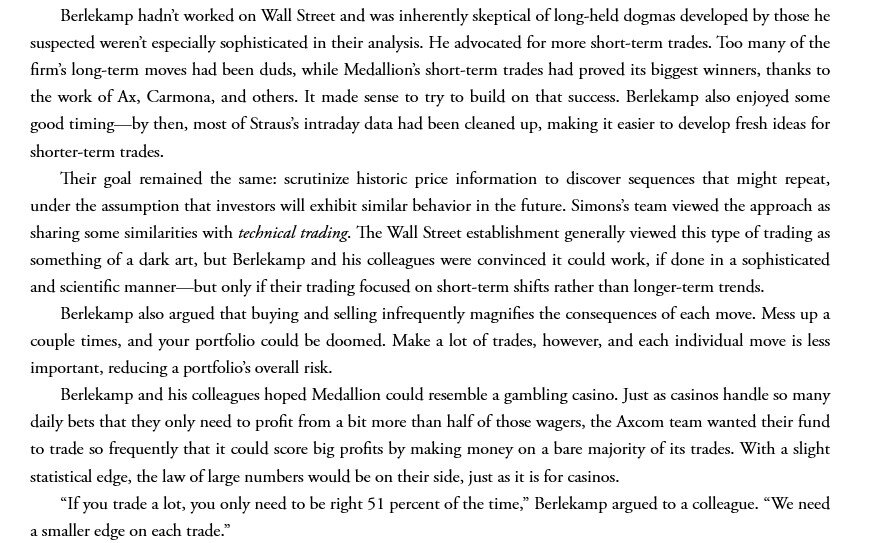The operative word here is “mathematical models”. Of course this can include probabilistic and statistical models as well.
So to sum it up, Quant trading is the application of Mathematics, Statistics and Probability theory in the area of trading.
For example, if you are looking at a simple Moving Average Cross over system, you may want to calculate the Conditional Probability and the Probability Distribution for various outcomes in terms of price. But merely trading a Moving Average Cross over system without having done the statistical work does not qualify as Quant trading.
Moving further, it’s important to understand that the Quant piece can be independently applied to the various aspects of trading. In other words you can use Quantitative analysis to find an edge through back-testing, likewise you can access the risk of various outcomes, you can also use Quant for execution to determine optimal sizing at a given point, and so on.
You can call yourself a Quant, if you are using Math or Stats for any of these applications.
The exhibit below is excerpted from the book - Inside the Black Box: A Simple Guide to Quantitative and High Frequency Trading (Wiley Finance Book 885) eBook: Rishi K. Narang - (On a side note, its a must read for any aspiring Quant)



